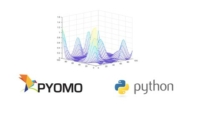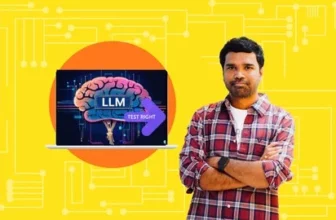
Optimization with Genetic Algorithms: Hands-on Python
Learn how to implement genetic algorithm from scratch to solve real world optimization problems
Created by Navid Shirzadi | 4.5 hours on-demand video course
The “Optimization with Genetic Algorithms: Hands-on Python” course is a comprehensive and practical guide to understanding and implementing genetic algorithms for solving various optimization problems. Genetic algorithms, inspired by the principles of natural evolution, are powerful techniques for finding optimal solutions in multiple domains.
In this Optimization with Genetic Algorithms course, you will learn the fundamental concepts of genetic algorithms and their applications in optimization. Starting from the basics, you will explore the principles of selection, crossover, and mutation that drive the evolution process. You will understand how to represent problem solutions as chromosomes, apply genetic operators to generate offspring, and evaluate the fitness of individuals.
With a hands-on approach, you will dive into implementing genetic algorithms using Python programming language. Through a real-world problem project, you will gain proficiency in designing and optimizing genetic algorithms for real-world scenarios. You will learn how to define appropriate fitness functions, set up population structures, control algorithm parameters, and handle constraints in optimization problems.
What you’ll learn
- Introduction to Genetic Algorithm Concepts
- Development of Genetic Algorithm from scratch
- Essential genetic operators used in genetic algorithms
- Genetic Algorithm Library in Python
Recommended Course
Numerical Optimization and Operations Research in Python
Optimization with Python: Complete Pyomo Bootcamp A-Z Best seller
Optimization with Python: Solve Operations Research Problems Best seller
PyTorch for Deep Learning Bootcamp: Zero to Mastery
Who this course is for:
- Students pursuing degrees in computer science, engineering, mathematics, or related fields
- Programmers and software developers who are interested in learning new algorithms and problem-solving techniques
- Researchers in the fields of optimization, artificial intelligence, and evolutionary computation
- Data scientists who work on optimization problems or seek alternative approaches to traditional optimization methods
- Engineers and professionals working in domains such as manufacturing, logistics, finance, and operations
- Individuals with a general interest in algorithms, optimization, and problem-solving













